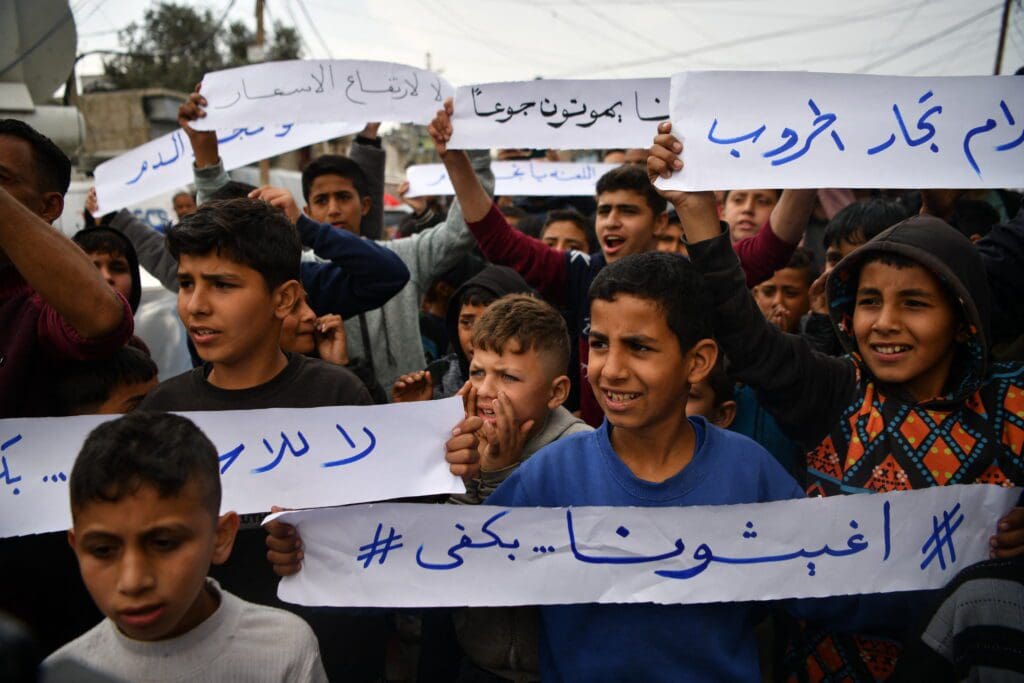Over the past four months, Middle Eastern nations have been dismayed by the near-unconditional support from Western governments to Israel as it has bombarded and besieged the Gaza Strip and is now ramping up an assault on Rafah—a sliver of territory where more than a million displaced civilians have gathered. As a result, some have mustered their own diplomatic proposals and sought recourse elsewhere, within capitals in the West, outside the Western bloc, and in international fora. Ultimately, these efforts have been limited and ineffectual, as the Israeli government has proceeded undeterred.
Regional Efforts
Diplomatic approaches among regional actors have varied. Qatar has emerged as the main interlocutor for the negotiations over hostage releases and corresponding pauses in the fighting. Egypt has attempted to play a similar role but with limited success. Saudi Arabia hosted a joint summit of the Arab League and the Organization of Islamic Cooperation (OIC), which passed a resolution tasking seven foreign ministers with lobbying in key capitals for a ceasefire. The two organizations also endorsed South Africa’s genocide case against Israel at the International Court of Justice and called for the International Criminal Court prosecutor to investigate Israeli decision-makers for crimes against humanity.
Apart from this, Riyadh has largely adopted a low profile on the issue. Given the ongoing war with its devastating humanitarian consequences—and with the talks of population expulsion being floated openly by Israeli officials—these regional efforts have not produced any concrete results. Aside from the efforts of Qatar (and, to a lesser extent, those of Jordan and Egypt), Arab diplomacy following the invasion has thus far proved to be paltry and toothless.
Moreover, there are scant ideas for how to move forward. Arab states, not least Saudi Arabia, have largely opted for a policy of carrot rather than stick with Israel. They are effectively reviving the idea that underpinned Saudi Arabia’s 2002 Arab Peace Initiative (API), which offered full normalization in exchange for Israel withdrawing to its internationally-recognized 1967 borders and committing to a two-state solution. However, Israel’s far-right government is not interested in this idea. Prime Minister Benjamin Netanyahu is unambiguous in his opposition to Palestinian statehood and commitment to further illegal settlement expansions in the West Bank. Short of concerted international pressure with clearly articulated consequences, particularly from the United States, Israel is unlikely to change course.
Alternatively, Turkish Foreign Minister Hakan Fidan has advanced the idea of a multi-country guarantor system as a way of dealing with the conflict—with Türkiye, certain Arab states, and international actors serving as guarantors for the Palestinian side. Ankara wants more discussion on this or similar schemes at regional or international levels. However, Arab states have not, as of yet, shown much appetite for this proposal and Ankara does not appear to want to get out ahead of the Arab states on the issue. Yet, there does not seem to be an effective agency of that kind. This in return further weakens regional diplomacy.
So far, no regional proposals have gained any significant traction with Western actors who are currently preoccupied with their conversations about the “day-after” Israel’s war. In the absence of a ceasefire, and without a holistic picture of the Palestinian question beyond Gaza and Hamas, these conversations merely perpetuate the conflict. Against this backdrop, apart from an energetic diplomatic push for a ceasefire, regional states should expand the international conversation on the Palestinian question beyond the limited scope of Gaza and Hamas, which further fragments the Palestinian issue and reduces it to a security matter. Furthermore, with many western countries cutting their funding to UNRWA—the United Nations agency responsible for Palestinian refugees—in response to Israel’s allegations that a handful of its employees were involved in the October 7th attack, the humanitarian situation of Palestinians, and refugees in particular, has become incredibly dire. To stave off a catastrophic famine, these regional countries could at the very least organize a donor conference to fill the gap in funding created by the cuts from Western countries.
Looking East
To counter the West’s strong pro-Israeli disposition, certain regional states have turned to alternative, non-Western powers like China and Russia. Yet these states have, so far, offered little beyond condemnation of Israel and criticism of Western double standards. Both countries are content to capitalize on growing discontent with the West, particularly the United States, but are reluctant to meaningfully intervene with diplomatic proposals or sustained pressure. In reality, China’s influence in Israel has been decreasing for years, especially during the Trump presidency. This limits its ability to play a meaningful diplomatic role.
Moreover, the ongoing assault on Gaza is serving the interests of Beijing and Moscow in other ways. For one, it strengthens both of their anti-Western narratives and expands the adopters of that narrative, bolstering accusations of Western hypocrisy and double standards towards the non-Western world—an accusation that resonates with large parts of the Global South and on streets and university campuses in the West. This allows China to develop a global narrative—however inchoate and reactive—premised on widespread discontent with the different manifestations of double standards in Western policy and buttressed by the historical memory of imperialism and colonialism in the non-Western world. The collapse of the West’s moral and narrative power, as evidently put on display in Gaza, is welcome news for Beijing and Moscow, in spite of their own narrative lacking a proactive global vision.
China and Russia are also happy that the United States is consuming more time, energy, and resources in the Middle East, reducing its focus on areas of more strategic importance to these two countries, such as Ukraine for Russia and the Asian continent for China. Certainly, if the conflict becomes regionalized in a more expansive sense, it will threaten China’s interests. Beijing remains more reliant on oil from the region than the U.S. and Europe, and would be heavily impacted by disruptions to maritime trade routes. However, China’s interests have not yet been threatened by the war in any significant manner, as the Houthis’ attacks in the Red Sea have thus far avoided Chinese and Russian ships. Putting all these factors together, China and Russia’s narratives have not been matched by their actions.
Israel’s invasion of Gaza is ultimately a global event with broad international ramifications. The West’s standing in the world and the global order it underpins have been damaged, and international institutions and norms severely weakened. The gap between the West and the non-West has widened. Yet, the crisis has not produced a meaningful diplomatic response in the region to a crisis that has galvanized the public across the Middle East and North Africa and threatens widespread destabilization and war. Nor has it meaningfully impacted relations between Arab and Western governments. As the war in Gaza continues, however, regional countries could encounter more domestic discontent and be pushed to take measures that they would otherwise not take, such as making non-cooperation with Israel their lowest common denominator, as their people become increasingly dissatisfied with their states’ feeble policy responses.
The opinions expressed in this article are those of the author and do not necessarily reflect the views of the Middle East Council on Global Affairs.


